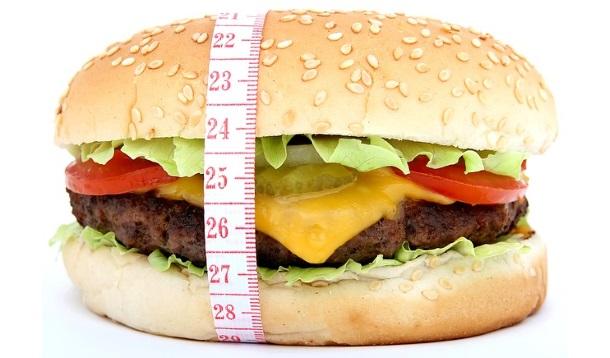
Have you ever opened a package of chips, chocolate, or cookies (or whatever your favourite vice is) and suddenly found yourself holding an empty bag, your jaw dropping as you wonder where it all went? We’ve all been there – our mind is somewhere else, completed dislocated from what our bodies are doing.
As a busy mom, you probably eat without thinking on a regular basis. You grab a slapdash meal while your baby is napping, shovel a quick bowl of cereal while standing up at the kitchen counter, or pinch the uneaten leftovers from your child’s plate so good food doesn’t go to waste.
But when we don’t pay attention to our food, we end up overeating or making choices that aren’t nourishing and helpful. This can lead to digestive troubles, weight gain, and feeling guilt and shame about eating.
Employing conscious eating strategies can help us discover our bodies’ true needs and wants, feel satisfied, experience pleasure in eating and support our overall health. Easier said than done, though, right? Here are some ways you can stop overeating and step away from the triple chocolate fudge brownies.
Amidst the chaos, you may not even recognize your eating habits. A food journal can help bring awareness to exactly what you’re eating and how you’re eating. Before we can make any changes, we need to know what needs improvement!
Try recording everything you eat (yes, everything) for three days. You can track it using a notes function on your phone or use the classic pen and paper. Once you’re done your journal, take a look and try to identify any patterns. Are you eating too much sugar? Downing too many cups of coffee? Going too long without eating, which leads to binging later? Are you not getting enough protein?
From there, define one or two goals you’d like to work on. Don’t make a laundry list of changes – begin with shifting one thing. That one thing often leads to many things, so not to worry.
Your body is a smart cookie. Listen to it (just like you listen to your mother’s intuition). Follow the wisdom inherent in your own body to guide you to healthy food choices.
The best thing you can do to before eating is ask yourself, "Am I truly hungry?" This one magical question does wonders to prevent overeating or eating when you’re not even hungry.
Don’t forget when you are eating to pay attention to your food as much as you can. Inhale the aromas. Chew your food. Enjoy it. This may be tricky with a screaming child on your hip, so you don’t always have the opportunity to eat consciously at every single meal and snack. Start with one conscious meal a week. If your kids are older, have them sit down at the table with you and eat and chat together, instead of chowing down in front of the TV or on the run.
The hunger or cravings produced by our minds often stems from a desire to recreate previous experiences or memories of pleasurable tastes. Problem is, these habits can decrease our health rather than improve our well-being. Remember, what we choose to feed ourselves with ultimately impacts how we feel and the results we get from our bodies.
Eat to satisfy the physical need of your body, not an emotional need. Pay attention to the events in your life that prompt you to reach for certain foods. Do you devour junk food when you’re stressed out, worried, frustrated with your kids, or angry at your partner? Recognize these triggers and see if there is a way to resolve them without eating.
If you’ve had a tense and stressful day, try to let go of that tension before you sit down to eat. Stress saps your energy and leaves you craving something to replace that energy – and most of the time, we reach for chips or candy instead of carrots to fill the void.
When we experience stress, blood flow is diverted away from our stomachs and into our limbs so we can run away. It’s a throwback from our ancestors, but today, the stress response means we can’t digest our food properly.
Relaxation before eating (or at any time, really) can be incredibly challenging in a hectic household. Carve out a small bit of space and time for yourself before meals – even taking 10 slow, deep breaths can be helpful. Snuggle with your children (if they’re young enough to let you!) or throw on some enjoyable music. For some people, the act of cooking itself is calming and therapeutic. Others, not so much. Discover what works best for you and your family.
It’s possible to overeat or "stress eat" any type of food. Four chocolate chip cookies or four fistfuls of organic cashews can both be damaging to your body if you’re not hungry and don’t need to eat.
Many businesses have hopped onto the health train and are slapping marketing claims onto their products, creating confusion for consumers. Just because a label says "natural" or "gluten-free," it doesn’t mean it’s good for you.
Be discerning and conscious no matter what you choose to eat.
Conscious eating is simply a practice that helps us tune into what our body actually needs and make choices accordingly. You don’t need any special equipment to eat consciously – and it’s something you can do anywhere and anytime. The more you practice this, the easier it will get. So why not start today?
Meghan Telpner is a Toronto-based author, speaker, nutritionist, and founder of the Academy of Culinary Nutrition. She is the bestselling author UnDiet: Eat Your Way to Vibrant Health and The UnDiet Cookbook. For more visit MeghanTelpner.com.
![]() RELATED: Why Skipping Meals is Bad For You
RELATED: Why Skipping Meals is Bad For You